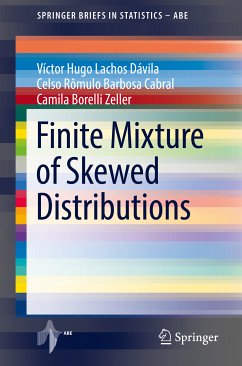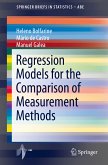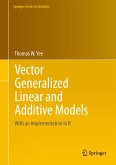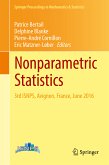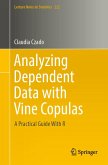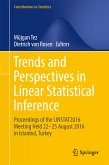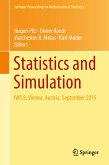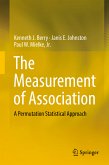This book presents recent results in finite mixtures of skewed distributions to prepare readers to undertake mixture models using scale mixtures of skew normal distributions (SMSN). For this purpose, the authors consider maximum likelihood estimation for univariate and multivariate finite mixtures where components are members of the flexible class of SMSN distributions. This subclass includes the entire family of normal independent distributions, also known as scale mixtures of normal distributions (SMN), as well as the skew-normal and skewed versions of some other classical symmetric distributions: the skew-t (ST), the skew-slash (SSL) and the skew-contaminated normal (SCN), for example. These distributions have heavier tails than the typical normal one, and thus they seem to be a reasonable choice for robust inference. The proposed EM-type algorithm and methods are implemented in the R package mixsmsn, highlighting the applicability of the techniques presented in the book.
This work is a useful reference guide for researchers analyzing heterogeneous data, as well as a textbook for a graduate-level course in mixture models. The tools presented in the book make complex techniques accessible to applied researchers without the advanced mathematical background and will have broad applications in fields like medicine, biology, engineering, economic, geology and chemistry.
Dieser Download kann aus rechtlichen Gründen nur mit Rechnungsadresse in A, B, BG, CY, CZ, D, DK, EW, E, FIN, F, GR, HR, H, IRL, I, LT, L, LR, M, NL, PL, P, R, S, SLO, SK ausgeliefert werden.
Es gelten unsere Allgemeinen Geschäftsbedingungen: www.buecher.de/agb
Impressum
www.buecher.de ist ein Internetauftritt der buecher.de internetstores GmbH
Geschäftsführung: Monica Sawhney | Roland Kölbl | Günter Hilger
Sitz der Gesellschaft: Batheyer Straße 115 - 117, 58099 Hagen
Postanschrift: Bürgermeister-Wegele-Str. 12, 86167 Augsburg
Amtsgericht Hagen HRB 13257
Steuernummer: 321/5800/1497
USt-IdNr: DE450055826
Bitte wählen Sie Ihr Anliegen aus.
Rechnungen
Retourenschein anfordern
Bestellstatus
Storno

